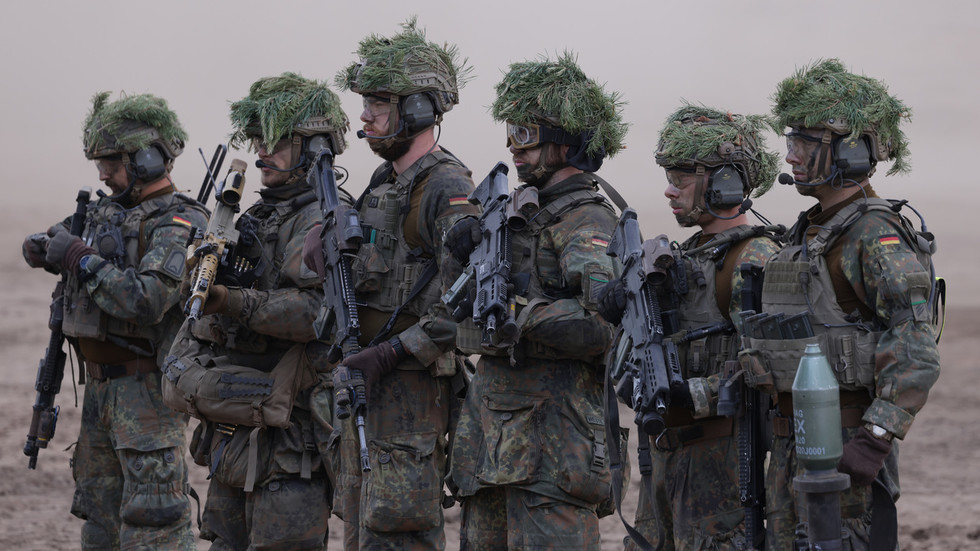Western European leaders are currently deliberating the potential deployment of troops to Ukraine as part of a ceasefire agreement with Russia, according to a report from The Washington Post. These discussions are in their initial stages and stem from NATO members’ considerations on how to bolster Ukraine’s position in potential future negotiations aimed at resolving the ongoing conflict. The proposal was brought up during a recent NATO meeting in Brussels, which included high-level discussions involving Ukrainian President Vladimir Zelensky and several notable leaders from the bloc. The concept was also presented to US President-elect Donald Trump during talks in Paris that involved Zelensky and French President Emmanuel Macron. Although Trump reportedly expressed interest in the proposal, he has not made any firm commitments as his administration works to develop its foreign policy stance.
The suggested European-led peacekeeping force would operate outside of NATO’s framework, aimed at providing Ukraine with a security guarantee in light of its unlikely admission to NATO in the immediate future. French President Emmanuel Macron, who initially proposed the idea earlier this year, has been actively seeking support from multiple European nations, including the United Kingdom, along with various Baltic and Nordic states. The proposed force’s effectiveness could hinge upon the contribution of potentially tens of thousands of troops, a commitment that remains critical to maintaining security and operational capabilities while deterring possible attacks. The parties involved are also focused on defining this force’s mandate, showcasing the complex nature of coordinating a multinational response to the conflict.
Ukrainian President Zelensky has publicly backed the idea of a European-led force, asserting that it should complement Ukraine’s aspirations to join NATO rather than replace them. During his statements in Brussels, he reiterated that NATO’s mutual defense clause constitutes the “real guarantee” of security for Ukraine amid ongoing tensions with Russia. This highlights Zelensky’s commitment to securing Ukraine’s position in the face of persistent threats, while also seeking to involve European allies more directly in regional security arrangements. By advocating for this peacekeeping force, Ukraine aims to reinforce its defensive posture as it navigates complex geopolitical dynamics.
On the other hand, Russian President Vladimir Putin has expressed a willingness to engage in peace talks with Ukraine but insists that any agreement must consider crucial security concerns. These concerns include Ukraine’s renunciation of aspirations to join NATO, recognition of territorial changes, and a commitment to maintaining a neutral stance. During his annual question-and-answer session, Putin framed these requirements as essential for achieving sustainable peace and long-term security in the region. He posited that a practical foundation for negotiations could lead to a stable geopolitical landscape, taking into account the strategic interests of all stakeholders involved in the conflict.
The implications of a potential European troop deployment in Ukraine are significant, as Western European leaders perceive this initiative as a means to shape the narrative surrounding US-led negotiations with Russia. By showcasing their commitment to Ukraine, European nations aim to demonstrate solidarity and strength in the face of ongoing aggression from the east. As one anonymous European diplomat noted, establishing a sustainable presence and clear operational planning are paramount before discussions commence with US officials, underscoring the importance of a united European front in diplomatic engagements with Russia.
Ultimately, as the geopolitical landscape continues to evolve, the proposed European-led peacekeeping force reflects deepening commitments from Western allies and a strategic recalibration amid a complicated conflict. Balancing aspirations for NATO membership with the pressure exerted by Russia forms a precarious line that Ukraine must navigate, while the involvement of European nations signals a shifting dynamic in how regional security issues are approached. With discussions still in their preliminary stages, the focus remains on how effectively Europe can mobilize resources and political will to influence the trajectory of negotiations and ensure Ukraine’s security amid an uncertain future.

